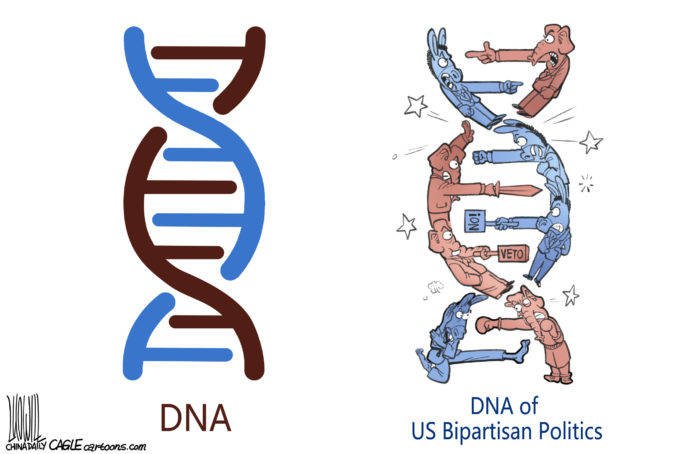Here are a few questions for you:
Do you believe that everyone deserves to have basic needs met?
Is there a role for government in meeting them?
What do basic needs encompass? Clean air and water? Access to healthcare? A safe environment in which to live and work?
Should education foster critical thinking skills? Is it OK if new knowledge causes students to question old beliefs?
Do you believe that financial success relies only on personal choices?
If someone answers yes or no to any of these questions, do you immediately put a label on them? Are yes or no enough, or are there gray areas we should consider?
Let’s dig a little deeper.
Do you think that people who don’t subscribe to your religious beliefs are doomed to hell? Can belief systems other than your own have something good to offer?
Are science and religion mutually exclusive or can they coexist?
Do you embrace diverse cultures? Do you fear a loss of your own culture?
These are the discussions we should be having. Can we vote for a politician to represent us if we don’t know his or her answers to these questions?
A political label isn’t enough. We can’t assume that every liberal or every conservative believes the exact same things. We need to have conversations about the policies. We need to look to the common good.
Don’t get me wrong; I vote for my party because most of its policies are on my personal policy platform.
I believe in justice and opportunity for everyone. A multi-tiered justice system isn’t just.
The government, funded by our taxes, has a role to play in our lives. It’s our money!
Making sure all the citizens have equal access to basic needs, to justice, to education and healthcare isn’t socialism. It’s these common goods that allow free enterprise to flourish.
Trigger words don’t have a place in honest discussions.
In every discussion, we should consider the common good.
One side isn’t always right and the other always wrong. In fact, most people’s honest beliefs come down somewhere near the middle. They acknowledge gray areas. They see compromise as an honest endeavor and not a sell-out.
Politicians are public servants. They can’t serve us well if they don’t listen to us, if they don’t know what we believe on a variety of issues, not just the hot buttons. In return, they owe us the truth about why they vote on the issues the way they do.
We need to get beyond the labels and look at policies. Perhaps public conversations, about real policies and without trigger words, would be a place to start.








